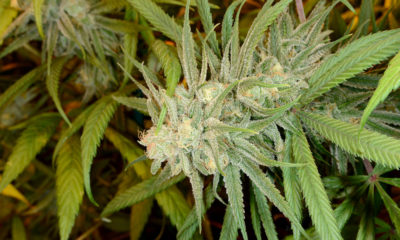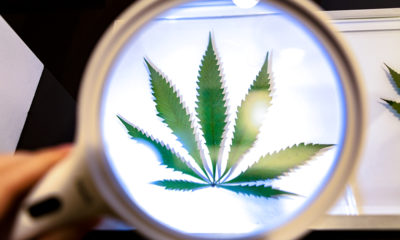
Medical
Study: Marijuana Might be the Solution for Drug Addiction
Rats treated with CBD were less likely to relapse, even five months after treatment.
Cannabis is a drug. This is certain. “So are caffeine, nicotine, and ibuprofen,” tedious pedants might say.
But let’s say you’re in recovery. You want to be “clean and sober” from drugs and alcohol. Not want — you must be.
Being “drug-free,” of course, comes with some stipulations. Nobody would begrudge you a cigarette, a cup of coffee, or a couple of Advil. (Tobacco will kill you, but that’s probably not why you sought help.)
But can you use marijuana and still “stay clean?” The notion might have been unacceptable or unthinkable, but what if it was the cannabis that helped you get clean in the first place?
At a recovery clinic in Los Angeles that specializes in opioid addiction, cannabis is a key part of the treatment regimen. Granting people with heroin habits unfettered access to dab rigs might have once sounded outrageous or counter-intuitive, but using marijuana instead of other, addictive and destructive drugs is “replacement therapy,” one of the key tenets of harm reduction strategy. And lo, according to research, giving people weed makes them less likely to seek opiates.
And now, there’s science supporting this method, and this research also explains why marijuana might be the solution to certain substance-abuse disorders.
If it’s true that drug addiction is a disease, the central issue isn’t this or that drug per se — it’s the underlying trauma or mental illness that leads to drug-seeking behavior in the individual. (Hence the coffee and the cigarettes at AA meetings; better those than a glass of whiskey and a line of cocaine.) According to an article published in the journal Neuropsychopharmacology, a compound in cannabis may sooth those impulses and anxiety that lead addicts towards relapse.
Cannabidiol, or CBD, is the less-psychoactive (or at least non-intoxicating) compound in cannabis increasingly accepted as a medical treatment, even in red states. There is medical-marijuana in Texas, and it’s because of CBD.
Researchers at the Scripps Research Institute in La Jolla, California gave a cohort of drug and alcohol-addicted lab rats a CBD preparation. Up until then, those rats had demonstrated an “addiction-like behavior” where they daily sought “alcohol or cocaine,” according to UPI. When treated with CBD daily, the rats were less likely to seek more alcohol and cocaine. In addition, they were less likely to relapse, the researchers found.
More study found that though CBD itself was clear from the rats’ brains and blood within three days, those rats still were less likely to relapse five months later.
While it’s true that the study was on rats and not people, the findings demonstrate CBD’s broad potential. There’s not one thing that triggers a relapse in people, but there are a variety of “vulnerability states,” including stress and anxiety. CBD appears to act as a broad “cure-all,” solving a variety of these “vulnerability states,” according to the researchers.
“The results provide proof of principle supporting potential of CBD in relapse prevention along two dimensions CBD: beneficial actions across several vulnerability states, and long-lasting effects with only brief treatment,” the researchers wrote. “The findings also inform the ongoing medical marijuana debate concerning medical benefits of non-psychoactive cannabinoids and their promise for development and use as therapeutics.”
It’s true that states that have legalized medical or recreational marijuana have not suffered nearly as badly in the opiate crisis as states where cannabis is still illegal. This is a causal relationship that nonetheless is leading states with opiate problems (and that’s almost every state) to consider legal cannabis. And that’s when cannabis isn’t applied by treatment professionals in a clinical setting.
Yes, cannabis is a drug, but it could also be the “anti-drug.”
TELL US, do you think cannabis could work as a tool to get people off harder drugs and alcohol?























